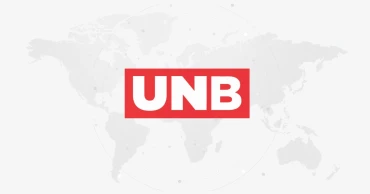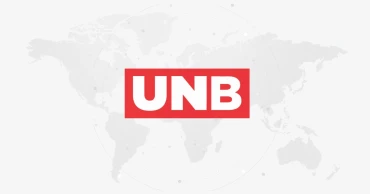freedom of expression
UN expert Irene Khan sees "global crisis" of freedom of expression
Deadly attacks on journalists in Gaza and double standards and discrimination against those advocating for Palestinian rights have created a global crisis of freedom of expression, a UN expert said.
Presenting her report to the General Assembly, Irene Khan, Special Rapporteur on freedom of opinion and expression, highlighted the widespread violations of freedom of expression arising from the conflict in Gaza, including the killing of journalists in Gaza, the crushing of protests worldwide against the carnage, the muzzling of Palestinian advocacy and the upsurge of disinformation, misinformation and hate speech online and offline.
“No war in recent times has affected freedom of opinion and expression so seriously or so far beyond its borders,” the expert said.
“Rarely have we seen such extensive patterns of unlawful, discriminatory and disproportionate restrictions on freedom of expression by States and private actors, especially in western democracies,” she said.
When the best universities and cultural institutions in western countries collude with their States to intimidate, isolate and silence dissenting voices on the Palestinian situation, they undermine their own artistic and academic freedoms and diminish the vibrancy of their own democracies, Khan said.
“The targeted killings and arbitrary detention of journalists, destruction of press facilities and equipment in Gaza, the denial of access to independent media, the banning of Al Jazeera appear to indicate a deliberate strategy by Israeli authorities to silence critical reporting and obstruct documentation of possible international crimes,” the expert said.
Why have States that promote themselves as media freedom champions remained silent in the face of such unprecedented attacks on journalists in the occupied Palestinian Territory?, she asked.
“The repression of media in Gaza and the West Bank is an attack on the right to information of people around the world who want to know what is happening there,” Khan said.
“While Jews, Jewish Israelis and Palestinians have all been targeted by disinformation, misinformation and hate speech on social media, the companies have tended in their content moderation to show a bias against Palestinian expression,” she said.
“Online and offline, international standards are being distorted and misinterpreted to equate criticism of Israeli Government policies and Zionism with antisemitism, which is racial and religious hatred of Jews and must be unequivocally condemned,” the expert said.
“Israel is a State. Zionism is a political ideology. Under international human rights law on freedom of expression, no State or political ideology can be shielded from criticism.”
The Special Rapporteur urged all States, companies and private institutions to refrain from discrimination and uphold freedom of expression equally for all persons, in line with international standards. She called on all States to act on the concrete recommendations in her report.
“Freedom of opinion and expression enjoyed on an equal basis by all sides is an invaluable tool for fighting hate, encouraging mutual respect and dialogue, for preserving democracy at home and promoting peace abroad,” Khan said.
1 year ago
Govt considering framework to hold those spreading disinformation accountable: Info State Minister
The government of Bangladesh is considering an effective framework to hold those spreading disinformation and rumours accountable.
"A framework on how to hold those who spread disinformation and rumors accountable is under consideration," State Minister for Information and Broadcasting, Mohammad A Arafat, said on Saturday (January 20, 2024).
Read: Referring to victims’ pleas, Sajeeb Wazed says BNP’s ‘disinformation campaign’ aimed at passing the blame on Awami League
In preventing propaganda, he said, the government is ensuring that freedom of expression and media is not hindered.
The information state minister made the announcement on X (formerly known as Twitter).
Read more: US expresses concern over ‘deep fakes’ in Bangladesh election-related disinformation
2 years ago
Prothom Alo journo offered a child Tk 10 and expressed his views in the minor’s name: Foreign Ministry
The government of Bangladesh has said as a party to the UN Convention on the Rights of the Child it would not tolerate any act of abusing children, noting that Prothom Alo journalist Shamsuzzaman Shams was arrested because of “child abuse and exploitation”.
"The government would also not accept any such effort aimed at maligning the Independence Day of the nation," the Ministry of Foreign Affairs said today (April 01, 2023).
The government of Bangladesh is committed to uphold the freedom of expression for all its citizens and the media, the foreign ministry said.
Read More: Prothom Alo journalist Shams denied bail, sent to jail
However, it said, creating social unrest by undertaking such “fraudulent acts” is contrary to the spirit of honest journalism.
The ministry said it has been brought to the notice of the government that some international media and institutions are claiming that a journalist in Bangladesh, named Shamsuzzaman, has been arrested as he wrote about the “cost of living in Bangladesh”.
"This information is totally false and fabricated. This journalist was arrested because of ‘child abuse’ and ‘child exploitation," the foreign ministry said.
Many media outlets have been continuously reporting on the cost of living in Bangladesh since the beginning of the Ukraine war which has caused inflation around the world.
Read More: Prothom Alo journalist Shams taken to court
"No one has been arrested due to such reporting. The said journalist was arrested because of child abuse and child exploitation, as he offered ten taka to a 9-year-old boy and then expressed his own views in the name of that child," the ministry said.
"That is surely an act of child abuse and exploitation. Secondly, he tried to undermine the independence of Bangladesh on the great Independence Day. These acts are surely tantamount to punishable crimes," the foreign ministry said.
Read More: Prothom Alo reporter Shamsuzzaman sued under DSA
2 years ago
UN expert welcomes verdict on Nobel laureate Maria Ressa's tax evasion case
The UN expert on freedom of expression Thursday welcomed the decision by a Philippines' court to acquit journalist and Nobel laureate Maria Ressa and news outlet Rappler of tax evasion charges.
"The acquittal of Maria Ressa and Rappler is a victory for media freedom as well as justice," Irene Khan, UN special rapporteur on the freedom of expression and opinion, said.
"Journalistic work, especially journalistic expression about public and political issues, is an integral part of the right to freedom of expression and guaranteed by international human rights law."
Ressa and Rappler were charged by the former administration in the Philippines with evading tax payments after the news outlet raised foreign funding.
If convicted, the Nobel laureate would have faced up to 10 years imprisonment and fines. Maria and Rappler denied the charges and said the transactions involved legitimate financial mechanisms.
Noting that Maria Ressa continues to face several other charges, including cyber libel, Irene called on the authorities to withdraw all charges against her.
Read more: Nobel winner Maria Ressa, news outlet cleared of tax evasion
"I urge the government to abolish criminal libel, which has no place in a democracy," she said.
The special rapporteur has been in touch with the Pilipino government on this matter for several years.
Special rapporteurs are part of what is known as the Special Procedures of the Human Rights Council.
Special Procedures, the largest body of independent experts in the UN Human Rights system, is the general name of the Council's independent fact-finding and monitoring mechanisms that address either specific country situations or thematic issues in all parts of the world.
Special Procedures' experts work voluntarily; they are not UN staff and do not receive a salary for their work. They are independent from any government or organization and serve in their individual capacity.
Read more: Journalist Maria Ressa reflects on Nobel Peace Prize win
Irene was appointed UN special rapporteur on the promotion and protection of the right to freedom of opinion and expression on July 17, 2020. She is the first woman to hold this position since the establishment of the mandate in 1993.
3 years ago
Drik hosts frank conversation about freedom of expression, media in Bangladesh
Shedding the spotlight on freedom of expression and media in Bangladesh, Drik Picture Library organised a special talk session on Wednesday in the capital's Panthapath.
Historian, researcher and UNB and Dhaka Courier Editor-at-Large Afsan Chowdhury joined this conversation alongside globally renowned photojournalist and Drik Managing Director Shahidul Alam at 5:30pm at Drikpath Bhaban.
The conversation addressed major roadblocks to freedom of media in Bangladesh through the narratives of two of the eminent media personalities in the country.
"In Bangladesh, there isn't any freedom of speech. The ideology that we are independent is a fundamental misconception in this country. We do not have control over the circumstances we are in," Shahidul said.
About the Digital Security Act (DSA), he said, "We objected to the rules included in the Digital Security Act, as it was the replacement of the ICT Act 2006's abolished provisions. The law minister who oversaw the creation of this act is no longer in office."
"The then-law minister stated about this bill that if a lawsuit was brought against a journalist under this statute, he would defend the journalist himself. No one doesn't even recall that clause anymore, as he is no longer a minister."
Read more: Media pursues diplomats to speak on Bangladesh’s internal affairs: Momen
"People mistakenly believe that Bangladesh has free media, but that is inaccurate," Afsan said. "The structural limitations of Bangladesh restrict media freedom."
"The government implements the DSA nowadays mostly because of Facebook, the largest social media platform in the world. For the administration, such a sizable social media platform is extremely concerning."
"Facebook is the mass media now, and also the most popular platform where everyone is a journalist. The majority of media outlets in Bangladesh were founded by their owners because they needed to make money. That demand must be dropped to obtain and practice the freedom of media, but no one wants to take that chance."
"So if the journalists want to practice journalism on their own, they must do it alone because the organisations cannot assist them. We now need to consider how to properly express our opinions on social media, while ensuring freedom of speech at the same time," Afsan said.
Read more: Responsible, credible media hold all parties to account: Gwyn Lewis
3 years ago
Journalists from Philippines, Russia get Nobel Peace Prize
Journalists Maria Ressa of the Philippines and Dmitry Muratov of Russia won the 2021 Nobel Peace Prize on Friday for their fight for freedom of expression in countries where media outlets have faced persistent attacks.
The Norwegian Nobel Committee stressed that an independent press is vital in promoting peace.
“Free, independent and fact-based journalism serves to protect against abuse of power, lies and war propaganda,” said Berit Reiss-Andersen, chair of the committee, explaining why the prize was awarded to two journalists.
Read:Tanzanian Abdulrazak Gurnah awarded Nobel literature prize
“Without freedom of expression and freedom of the press, it will be difficult to successfully promote fraternity between nations, disarmament and a better world order to succeed in our time," she said.
Ressa in 2012 co-founded Rappler, a news website that has focused “critical attention on the (President Rodrigo) Duterte regime’s controversial, murderous anti-drug campaign,” the Nobel committee said.
She and Rappler “have also documented how social media is being used to spread fake news, harass opponents and manipulate public discourse.”
Reacting to the news, Ressa told Norway’s TV2 channel that “the government (of the Philippines) will obviously not be happy,”
“I’m a little shocked. It’s really emotional," she added. “But I am happy on behalf of my team and would like to thank the Nobel Committee for recognizing what we are going through.”
The award-winning journalist was last year convicted of libel and sentenced to jail in a decision seen as a major blow to press global freedom. She was the first woman to win a Nobel this year.
Muratov was one of the founders of the independent Russian newspaper Novaya Gazeta in 1993.
“Novaya Gazeta is the most independent newspaper in Russia today, with a fundamentally critical attitude towards power,” the Nobel committee said.
“The newspaper’s fact-based journalism and professional integrity have made it an important source of information on censurable aspects of Russian society rarely mentioned by other media,” it added.
According to the Committee to Protect Journalists, 17 media workers were killed in the Philippines in the last decade and 23 in Russia.
The Nobel committee noted that since the launch of Novaya Gazeta, six of its journalists have been killed, among them Anna Politkovskaya who covered Russia’s bloody conflict in Chechnya.
Kremlin spokesman Dmitry Peskov praised Muratov as a “talented and brave” person.
“We can congratulate Dmitry Muratov — he has consistently worked in accordance with his ideals,” Peskov said in a conference call with reporters.
Reiss-Andersen noted that the peace prize has gone to journalists in the past, including Ernesto Teodoro Moneta of Italy who was cited in 1907 “for his work in the press and in peace meetings.”
In 1935, German journalist Carl von Ossietzky was awarded the prize “for his burning love for freedom of thought and expression” after revealing that the Nazi regime was secretly re-arming in breach of the World War I peace accord.
Read:Nobel in chemistry honors 'greener' way to build molecules
Ressa has been particularly critical also of the role of tech companies such as Facebook in manipulating public debate, and their failure to curb hate speech.
Speaking on Rappler's site after the award was announced, Ressa said that the “virus of lies that has been introduced through the algorithms of the social media platforms, it infects real people and changes.”
4 years ago
India signs joint statement at G-7 for freedom of expression: ‘Internet curbs threat to democracy’
India Sunday signed off on a joint statement by G-7 and guest countries on “open societies” that reaffirm and encourage the values of “freedom of expression, both online and offline, as a freedom that safeguards democracy and helps people live free from fear and oppression”, reports The Indian Express.
The statement also refers to “politically motivated internet shutdowns” as one of the threats to freedom and democracy.
The ‘Open Societies Statement’ was adopted at the end of an outreach session titled ‘Building Back Together—Open Societies and Economies’, where Prime Minister Narendra Modi was invited as a lead speaker.
Read:G7 must ensure vaccine access in developing countries: UN experts
Participating through video-conference, Modi said that “democracy and freedom were a part of India’s civilisational ethos”. However, he “shared the concern” expressed by several leaders that “open societies are particularly vulnerable to disinformation and cyber-attacks”.
According to the Prime Minister’s Office (PMO), Modi also stressed on the need to ensure that “cyberspace remains an avenue for advancing democratic values and not of subverting it”.
The joint statement was signed by the G-7 countries, and India, South Korea, Australia and South Africa, with host British Prime Minister Boris Johnson calling them “Democracies 11”.
While the statement is directed at China and Russia, India has been under scrutiny over Internet curbs in Jammu and Kashmir even as the Government is locked in a face-off over its new IT rules with tech giants such as Twitter, which described a police search at its offices in India last month as a “potential threat to freedom of expression”.
The joint statement at G-7 said: “We are at a critical juncture, facing threats to freedom and democracy from rising authoritarianism, electoral interference, corruption, economic coercion, manipulation of information, including disinformation, online harms and cyber attacks, politically motivated internet shutdowns, human rights violations and abuses, terrorism and violent extremism.”
It is learnt that New Delhi signed off on the statement after making its reservations known to the negotiators from G-7 countries. External Affairs Minister S Jaishankar, who had participated in the G-7 Foreign Ministers meeting in May, had said that “open societies and personal freedoms require careful nurturing. Must be on guard against fake news and digital manipulation.”
However, Indian government sources said that India doesn’t have any reservations on the final joint statement. “We have signed off on it,” a source said. Sources also pointed out that while the the statement is directed at China and Russia, the situation in India was not discussed at the G-7 meeting.
Read:G-7 leaders agree on vaccines, China and taxing corporations
The “open societies” statement also affirmed “human rights for all, both online and offline, as set out in the Universal Declaration of Human Rights and other human rights instruments, and opposition to any form of discrimination, so that everyone can participate fully and equally in society”.
It said that democracy includes “each citizen’s right to vote in free and fair elections and everyone’s right to assemble, organise and associate peacefully, within a system of accountable and transparent governance”.
It also committed to “strengthen open societies globally by protecting civic space and media freedom, promoting freedom of expression, freedom of assembly and association, and freedom of religion or belief, and by tackling all forms of discrimination, including racism.”
For India, these are important commitments amid global concern over the controversial Citizenship Amendment Act (CAA) that was cleared by Parliament in 2019.
Another G-7 statement — not signed by India and other outreach countries — hit out at China on “human rights and fundamental freedoms” in Xinjiang and Hong Kong, and the unilateral attempts to change the status quo in the South China Sea. It also called for a transparent and timely WHO Covid origins study in China.
On the second day of the outreach sessions, Modi also took part in another session titled ‘Building Back Greener: Climate and Nature’. Highlighting the non-democratic and unequal nature of global governance institutions, he called for the reform of the multilateral system as the best signal of commitment to the cause of Open Societies, the PMO said.
In the session on climate change, the Prime Minister highlighted that the planet’s atmosphere, biodiversity and oceans cannot be protected by countries acting in silos, and called for collective action on climate change.
Read: As summit ends, G-7 urged to deliver on vaccines, climate
Speaking about India’s “unwavering commitment” to climate action, he mentioned the commitment by Railways to achieve Net Zero Emissions by 2030. He stressed that India is the only G-20 country on track to meet its Paris commitments.
Modi also took note of the increasing effectiveness of the two major global initiatives nurtured by India — the CDRI and International Solar Alliance.
The Prime Minister stressed that developing countries need better access to climate finance, and called for a holistic approach towards climate change that covers mitigation, adaptation, technology transfer, climate financing, equity, climate justice and lifestyle change.
4 years ago
Why press freedom matters
In 1991, a group of African newspaper journalists came together in the capital of Namibia to issue the Windhoek Declaration, which asserted that, “[t]he establishment, maintenance and fostering of an independent, pluralistic and free press is essential to the development and maintenance of democracy in a nation, and for economic development.” The date of the Declaration's adoption, May 3, was subsequently declared as World Press Freedom Day, that was observed in Bangladesh as well as around the world this past week.
Freedom of expression and access to factual and accurate information provided by independent media are foundational to democratic societies. Under the Universal Declaration of Human Rights, freedom of expression includes the right of all individuals “to seek, receive and impart information and ideas through any media and regardless of frontiers.” Yet the outlook today for the rights of journalists around the world remains grim.
Also read: Bangladesh drops one notch in World Press Freedom Index
The Committee to Protect Journalists (CPJ) reported that in 2020, the number of journalists killed in retaliation for their reporting more than doubled, with Mexico and Afghanistan seeing the largest number of killings. According to CPJ, the number of journalists jailed for their reporting in 2020 reached its highest level since the organisation began keeping track, with China, Turkey, and Egypt imprisoning the most reporters last year. Unfortunately, the pandemic has provided a pretext for repressive governments to intensify pressure on independent media. It is exactly in that kind of hostile environment that the exercise of freedom of expression, especially by members of the press, becomes even more crucial in alerting the public to abuses and corruption and in countering dangerous misinformation and disinformation.
At least 247 journalists were reportedly subjected to attacks, harassment, and intimidation in 2020. More than 900 cases were filed under the draconian Digital Security Act (DSA) with nearly 1,000 people charged and 353 detained – many of them journalists. The DSA continues to be used to harass and indefinitely detain journalists, activists and others, resulting in a chilling effect on expression of dissent. In such a situation, it is perhaps not surprising that Bangladesh has slipped one notch in this year's World Press Freedom Index, by Reporters Without Borders, also known as Reporters Sans Frontières (RSF). The country was ranked 152nd out of 180 countries while its position was 151st last year. Even within South Asia, a region that has grown particularly notable for its growing curbs on press freedom, Bangladesh ranked last, behind countries like Afghanistan and Pakistan.
Also read: CPJ names Shahidul Alam among four for Int’l Press Freedom Awards 2020
Throughout the COVID-19 pandemic, journalists and media workers have been on the front lines to keep the public informed, at significant risk to their own health. Till April, 48 Bangladeshi journalists had died of the virus, one of the highest tallies in the world. Yet they must remain relentless in their quest to uncover the truth, for any society that fails to appreciate their worth can only be poorer for it.
4 years ago
Digital Security Act worst of all laws: BNP
BNP Secretary General Mirza Fakhrul Islam Alamgir on Sunday alleged that the government is trying curb the people’s freedom of expression through the Digital Security Act.
5 years ago
Writer Mushtaq laid to rest
Writer Mushtaq Ahmed, who died in police custody on Thursday after almost 10 months of incarceration in a Digital Security Act case, was laid to rest on Friday night at Azimpur graveyard.
5 years ago

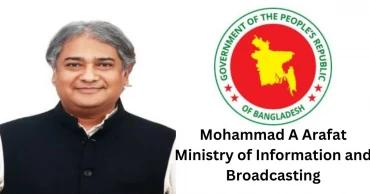
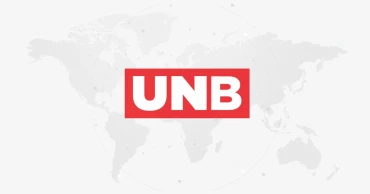
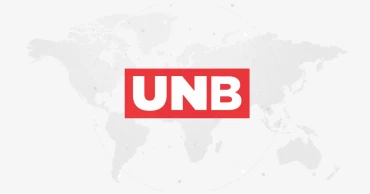
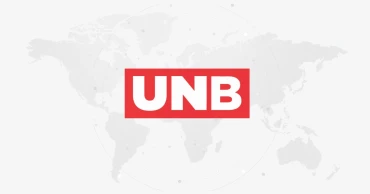
.jpg)

.jpg)
